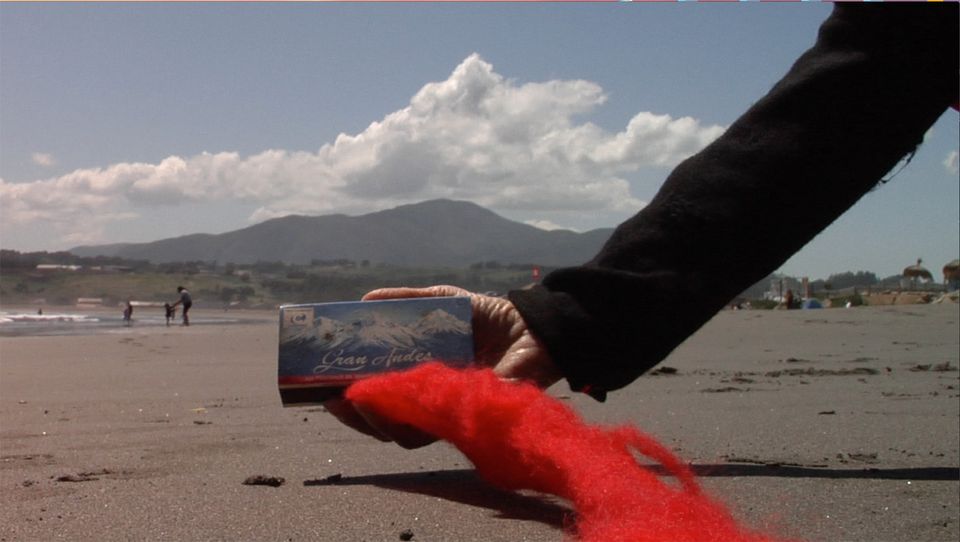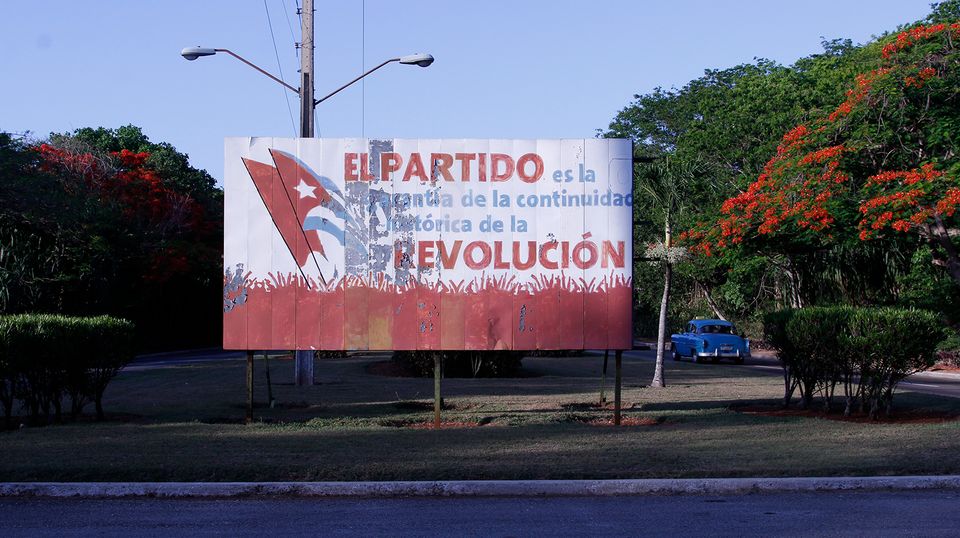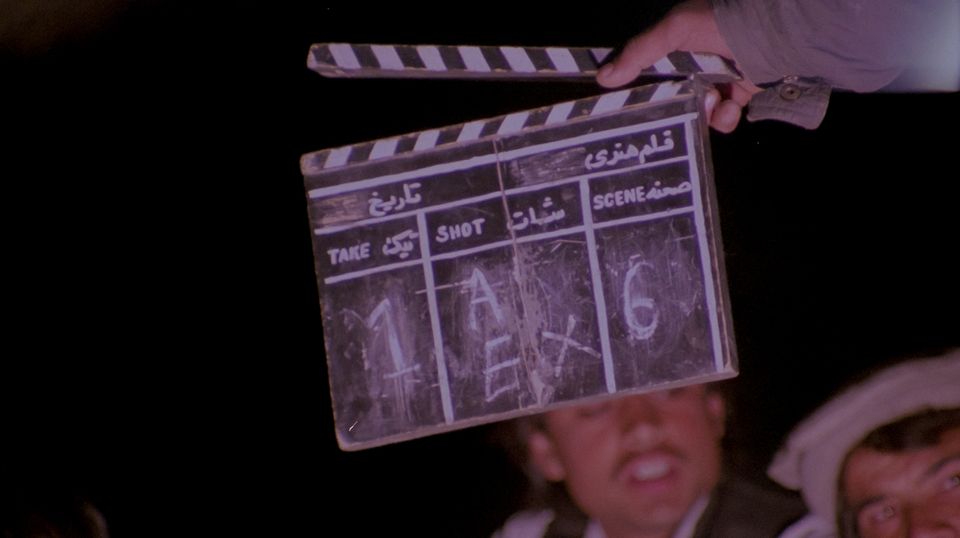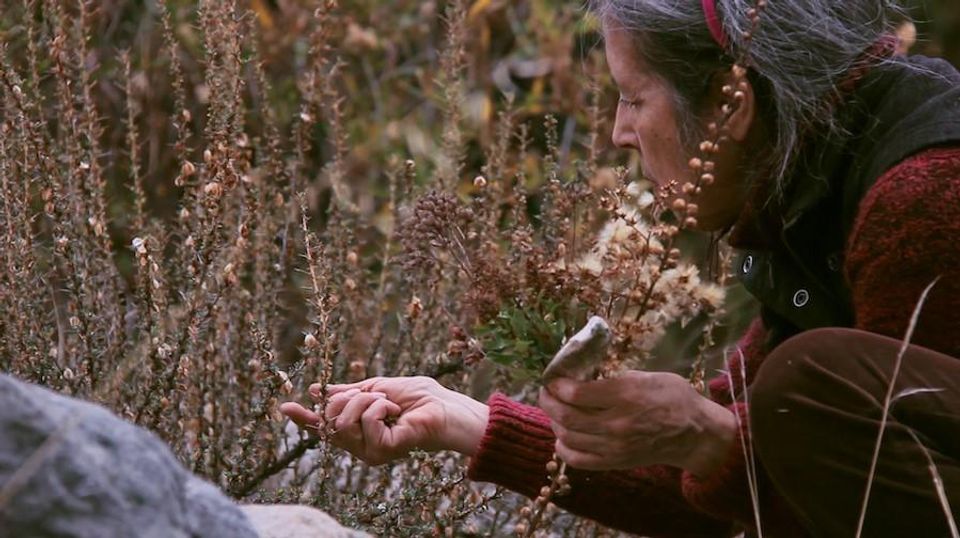
Join the Smithsonian American Art Museum for our third annual Women Filmmakers Festival. This year, the festival is presented exclusively online with screenings and programing that highlights a different, singularly-inspiring artist each week.
Organized around the theme of “Her History Lessons,” the featured filmmakers all create works that look to the past for insights into urgent issues of today. Acknowledging the momentous events of 2020, the selected videos reflect on colonial histories and the growing climate crisis; legacies of artists, activists, and state repression; and more than a century of pandemics tied to social upheavals. By inviting these artists and their works into conversation with Smithsonian curators and audiences, the festival this year reckons with challenges that traverse generations and have much to teach us in navigating the road ahead.
Each week of the festival we will highlight a different woman filmmaker. On Mondays, we will release a longer video work by the featured artist that will be available for viewing at any time during the week. Viewers are encouraged to enjoy the film and submit questions and comments. These will be compiled and discussed each Wednesday in a live virtual conversation that features the filmmaker and Smithsonian curators. All festival offerings are closed captioned.
Cecilia Vicuña
Internationally renowned artist Cecilia Vicuña (b. 1948, Santiago, Chile) creates works that engage with deep histories of place, particularly the coastal traditions and ecology of her homeland of Chile, from which she has been exiled since the US-backed coup in 1973.
Lessons from Environmental Histories with Cecilia Vicuña
Lessons from Environmental Histories
On Wednesday, March 3, 2021, the Smithsonian American Art Museum (SAAM) hosted a virtual conversation with renowned Chilean American artist Cecilia Vicuña. Learn more about the filmmaker’s compelling video artwork, which explores the deep histories, coastal traditions, and the ecology of her homeland of Chile. Vicuña is joined in conversation by Amalia Cordova, Latino curator for digital and emerging media at the Smithsonian’s Center for Folklife and Cultural Heritage, and Saisha Grayson, time-based media curator at the Smithsonian American Art Museum. This program discusses two of Vicuña’s short video artworks, Semiya/ Seed Song (2015) and Un nudo vivo/ A Living Knot (2017), which feature artistic rituals for healing human-environment relations, and her longer film Kon Kon (2010), which weaves together South American Indigenous wisdom, environmental and colonial histories, and the artist’s biography. All film clips have been removed from this event recording.
This program is part of the SAAM’s third annual Virtual Women Filmmakers Festival. Presented completely online, the festival ran from March 1-21, 2021, in honor of Women’s History Month and is supported by the Smithsonian American Women’s History Initiative, Because of Her Story. Organized around the theme of “Her History Lessons,” the festival’s featured artists are Cecelia Vicuña, Coco Fusco, and Mariam Ghani. Each artist creates works that look to the past for insights into today's urgent issues. Considering the momentous events of 2020, the selected videos reflect on colonial histories and the growing climate crisis; legacies of artists, activists, and state repression; and more than a century of pandemics tied to social upheavals.
This program is made possible by the Smithsonian American Women’s History Initiative, Because of Her Story, and is co-presented with the Center for Folklife and Cultural Heritage.
Renowned Chilean American artist Cecilia Vicuña participates in a virtual conversation about her work that explores the deep histories, coastal traditions, and the ecology of her homeland of Chile. Enjoy two short video artworks, Semiya (Seed Song) (2015) and Un nudo vivo (A Living Knot) (2017), featuring artistic rituals for healing human-environment relations.
Vicuña is joined in conversation by Amalia Cordova, Latino curator for digital and emerging media at the Smithsonian’s Center for Folklife and Cultural Heritage, and Saisha Grayson, time-based media curator at the Smithsonian American Art Museum.
This program is co-presented with the Smithsonian’s Center for Folklife and Cultural Heritage. A recording of this event featuring video artworks is available on this page for a limited time through March 10.
Coco Fusco
Award-winning artist and writer Coco Fusco (b. 1960, New York, NY) has been forcefully teasing out the complex relationships between artistic, political, and identity production since the 1990s, and emphasizing the roles of intellectual and creative communities in resisting state oppression and injustice.
Lessons from Activist Histories with Coco Fusco
Lessons from Activist Histories with Coco Fusco
On Wednesday, March 10, 2021, the Smithsonian American Art Museum (SAAM) hosted a virtual conversation with award-winning artist and writer Coco Fusco. Learn more about her work that examines the complex relationships between art, politics, and identity since the 1990s. Fusco is joined in conversation by Rhea Combs, curator of film and photography at the Smithsonian’s National Museum of African American History and Culture, and Saisha Grayson, time-based media curator at the Smithsonian American Art Museum. This program discusses Fusco’s 2004 video "a/k/a Mrs. George Gilbert," which explores the role of photography in the FBI’s hunt for and trial of Black Power activist Angela Davis, and the 2015 film "La botella al mar de María Elena". Take a closer look at how government surveillance impacts activists of the past, present, and future during this timely virtual conversation. All artwork clips have been removed from this event recording.
This program is part of the SAAM’s third annual Virtual Women Filmmakers Festival. Presented completely online, the festival ran from March 1-21, 2021, in honor of Women’s History Month and is supported by the Smithsonian American Women’s History Initiative, Because of Her Story. Organized around the theme of “Her History Lessons,” the festival’s featured artists are Cecelia Vicuña, Coco Fusco, and Mariam Ghani. Each artist creates works that look to the past for insights into today's urgent issues. Considering the momentous events of 2020, the selected videos reflect on colonial histories and the growing climate crisis; legacies of artists, activists, and state repression; and more than a century of pandemics tied to social upheavals.
This program is made possible by the Smithsonian American Women’s History Initiative, Because of Her Story, and is co-presented with the National Museum of African American History and Culture.
Award-winning artist and writer Coco Fusco participate in a virtual conversation about her work that examines the complex relationships between art, politics, and identity since the 1990s. Watch a screening of Fusco’s 2004 a/k/a Mrs. George Gilbert, which explores the role of photography in the FBI’s hunt for and trial of Black Power activist Angela Davis.
Fusco is joined in conversation by Rhea Combs, curator of film and photography at the Smithsonian’s National Museum of African American History and Culture, and Saisha Grayson, time-based media curator at the Smithsonian American Art Museum. Learn more about this earlier example of government surveillance and how it foreshadows contemporary activists’ experiences in an era of camera phones and facial recognition technologies.
This program is co-presented with the Smithsonian’s National Museum of African American History and Culture. A recording of this event featuring video artworks is available on this page for a limited time through March 17.
Mariam Ghani
Mariam Ghani (b. 1978, Brooklyn, NY) is an internationally exhibited artist, filmmaker, and writer, known for projects developed through extensive research and collaboration, and that iterate across the years to produce multiple, interconnected artworks and social interventions.
Lessons from Pandemic Histories with Mariam Ghani
Lessons from Pandemic Histories
On Wednesday, March 17, 2021, the Smithsonian American Art Museum (SAAM) hosted a virtual conversation with internationally exhibited artist, filmmaker, and writer Mariam Ghani to discuss two of her upcoming projects developed around the 100th anniversary of the 1918 pandemic. Learn more about how past health crises inform how we navigate COVID-19’s impact on our individual lives and societal landscapes. Ghani is joined in conversation by Saisha Grayson, time-based media curator at the Smithsonian American Art Museum, and Sabrina Sholts, curator of biological anthropology at the Smithsonian’s National Museum of Natural History and curator of the 2018 exhibition “Outbreak: Epidemics in a Connected World.” This program discusses Ghani’s upcoming films DIS-EASE and The Fire Next Time and her 2019 documentary What We Left Unfinished. All artwork clips have been removed from this event recording.
This program is part of the SAAM’s third annual Virtual Women Filmmakers Festival. Presented completely online, the festival ran from March 1-21, 2021, in honor of Women’s History Month and is supported by the Smithsonian American Women’s History Initiative, Because of Her Story. Organized around the theme of Her History Lessons, the festival’s featured artists are Cecelia Vicuña, Coco Fusco, and Mariam Ghani. Each artist creates works that look to the past for insights into today's urgent issues. Considering the momentous events of 2020, the selected videos reflect on colonial histories and the growing climate crisis; legacies of artists, activists, and state repression; and more than a century of pandemics tied to social upheavals.
This program is made possible by the Smithsonian American Women’s History Initiative, Because of Her Story, and is co-presented with the National Museum of Natural History.
Internationally exhibited artist, filmmaker, and writer Mariam Ghani participates in a virtual conversation about two of her upcoming projects developed around the 100th anniversary of the 1918 pandemic. Watch clips from the film DIS-EASE, which examines themes of illness, otherness, and invasion. Then enjoy excerpts from The Fire This Time, an in-progress short that traces the connection between epidemics and social upheaval from the 1800s to the present.
Ghani is joined in conversation by Saisha Grayson, time-based media curator at the Smithsonian American Art Museum, and Sabrina Sholts, curator of biological anthropology at the Smithsonian’s National Museum of Natural History. Learn more about Ghani’s films, Sholts’s 2018 exhibit Outbreak: Epidemics in a Connected World, and how past health crises inform how we navigate COVID-19’s impact on our individual lives and societal landscapes.
This program is co-presented with the Smithsonian’s National Museum of Natural History. A recording of this event featuring artworks is available on this page for a limited time through March 24.
Credit
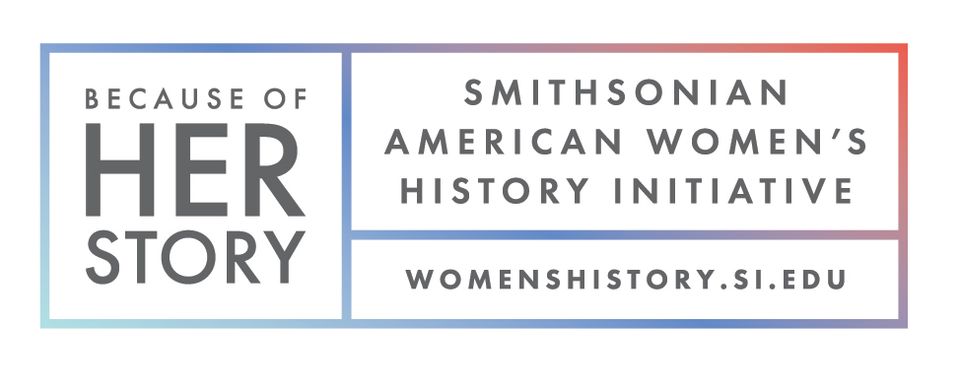
Women Filmmakers Festival at SAAM is made possible by the Smithsonian American Women’s History Initiative, Because of Her Story.














